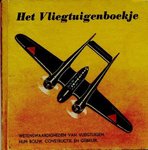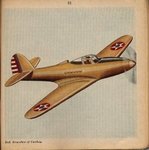- Thread starter
- #21
@ Renrich:
The Dutch population then amounted to about 9M or so. But when you say that a Texan city slicker would have no problem in conversing with a Texan countryman, would they be of the same social status? Or lawyer vs cattle herder? Of course university-educated people in the Netherlands then spoke more or less the same sort of language, but that did (and does!) not apply to the general population. You'll see from my further recollections that I encountered this difference myself during the war, and here's some more:
In the Fifties, I was in the Army and found myself in command of 40 rather piratical conscript soldiers. About half were Frisians and although they could speak Dutch, they only spoke Frisian among themselves. To preserve my life, authority and sanity, I had to take a crash course in Frisian so that I could understand what they were saying behind my back. To show who was boss, after a week or so I suddenly shouted a command for drill in Frisian. The problem was that the other half of the troop then crashed into the Frisians because they had no idea that I was ordering a turn-about… What's more, there were two guys from a sort of Appalachian hillbilly area and I never managed to figure out more than 1 in 3 words they said…
It's not just a matter of accent. In 1968 we moved from Amsterdam to a village some 30 miles North, in an area called West-Friesland. Rarely have I heard such interesting language. Besides the accent, the inflexion is sing-song-like and there are major differences in grammar. To construct theoretical equivalents in English: one might not say: "he was caught red-handed", but "he was catched …". On the other hand, "we have worked hard" might become "we have warken hard" or something similar. And then, there were lots of words you could not place at all, a word that in Dutch means "foliage" means "tired" in West-Frisian. Plus weird expressions like "he has his alarm clock well-set" for "he's bright" or "were you on the bum (word for your buttocks) yesterday" meaning "were you on the road". To make matters even more complicated, we had a carpenter from a village 2 miles away and when you treated him to a few beers he became difficult to follow even for his employees from our own village… That Babylonic confusion is still flourishing!
Regard the Netherlands as a patchwork quilt. Many of those differences go back 500 years, I think it would be quite surprising if you found a 98% Catholic village right in the middle of Texas, would it not?
An example: two of the most famous Dutch tourist traps are the village of Volendam and the village on the island of Marken. The autochthonic population (let's forget "aliens" that immigrated from other planets like nearby Amsterdam...) consisted of two groups: farmers and fishermen. The farmers are Protestant, the fishermen Roman Catholic. There may be a few exceptions and some may have lapsed, but that's the general picture. Marken is in sight of the fishermen's area of Volendam, 2 miles away, but is Protestant throughout. Edam, another tourist attraction, is about a mile distant from Volendam, but is Protestant and the Edam burghers tried to convert the Roman Catholic Volendam tars for a century or two...
That is why some Dutch will object to people saying they live in Holland, which is only the area of the two westernmost provinces of the Netherlands. If you say a Frisian or a guy from Limburg (in the South) comes from Holland, he'll show the same reaction as when you tell a Scotsman he's English…
As Gnomey would certainly confirm... Thanks for the Dowding statue quote, Gnomey, if anobody was treated shabbily it's him but if he had not been so obstinate we might now all speak German...
Another serving coming up in the weekend!
The Dutch population then amounted to about 9M or so. But when you say that a Texan city slicker would have no problem in conversing with a Texan countryman, would they be of the same social status? Or lawyer vs cattle herder? Of course university-educated people in the Netherlands then spoke more or less the same sort of language, but that did (and does!) not apply to the general population. You'll see from my further recollections that I encountered this difference myself during the war, and here's some more:
In the Fifties, I was in the Army and found myself in command of 40 rather piratical conscript soldiers. About half were Frisians and although they could speak Dutch, they only spoke Frisian among themselves. To preserve my life, authority and sanity, I had to take a crash course in Frisian so that I could understand what they were saying behind my back. To show who was boss, after a week or so I suddenly shouted a command for drill in Frisian. The problem was that the other half of the troop then crashed into the Frisians because they had no idea that I was ordering a turn-about… What's more, there were two guys from a sort of Appalachian hillbilly area and I never managed to figure out more than 1 in 3 words they said…
It's not just a matter of accent. In 1968 we moved from Amsterdam to a village some 30 miles North, in an area called West-Friesland. Rarely have I heard such interesting language. Besides the accent, the inflexion is sing-song-like and there are major differences in grammar. To construct theoretical equivalents in English: one might not say: "he was caught red-handed", but "he was catched …". On the other hand, "we have worked hard" might become "we have warken hard" or something similar. And then, there were lots of words you could not place at all, a word that in Dutch means "foliage" means "tired" in West-Frisian. Plus weird expressions like "he has his alarm clock well-set" for "he's bright" or "were you on the bum (word for your buttocks) yesterday" meaning "were you on the road". To make matters even more complicated, we had a carpenter from a village 2 miles away and when you treated him to a few beers he became difficult to follow even for his employees from our own village… That Babylonic confusion is still flourishing!
Regard the Netherlands as a patchwork quilt. Many of those differences go back 500 years, I think it would be quite surprising if you found a 98% Catholic village right in the middle of Texas, would it not?
An example: two of the most famous Dutch tourist traps are the village of Volendam and the village on the island of Marken. The autochthonic population (let's forget "aliens" that immigrated from other planets like nearby Amsterdam...) consisted of two groups: farmers and fishermen. The farmers are Protestant, the fishermen Roman Catholic. There may be a few exceptions and some may have lapsed, but that's the general picture. Marken is in sight of the fishermen's area of Volendam, 2 miles away, but is Protestant throughout. Edam, another tourist attraction, is about a mile distant from Volendam, but is Protestant and the Edam burghers tried to convert the Roman Catholic Volendam tars for a century or two...
That is why some Dutch will object to people saying they live in Holland, which is only the area of the two westernmost provinces of the Netherlands. If you say a Frisian or a guy from Limburg (in the South) comes from Holland, he'll show the same reaction as when you tell a Scotsman he's English…
As Gnomey would certainly confirm... Thanks for the Dowding statue quote, Gnomey, if anobody was treated shabbily it's him but if he had not been so obstinate we might now all speak German...
Another serving coming up in the weekend!
Last edited:



